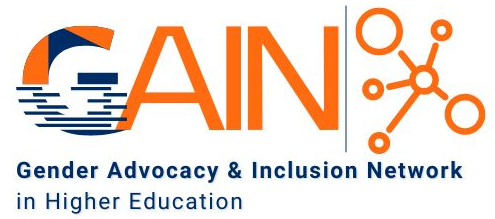Welcome to the 2025 Annual Conference!
Please refer to this page to access the schedule for our 2025 conference in Seaside, OR!
Have questions? Email us at conference@gainhighered.org
Schedule
Monday, April 21
1:00 - 8:00 PM: Registration / Check In Open
2:30 - 4:00 PM: Welcome & Opening Session
4:00 - 5:00 PM: Break; hotel check in
5:00 - 6:00 PM: Breakout session #1
6:00 - 7:30 PM: Dinner
8:00 - 10:00 PM: Beach & Dessert; weather permitting
Tuesday, April 22
7:00 - 9:00 AM: Breakfast on your own
8:00 - 10:00 AM: Coffee & Light Snacks
8:00 - 4:00 PM: Registration / Check In Open
9:00 - 10:00 AM: Breakout Session #2
10:00 - 10:30 AM: Break
10:30 - 11:30: Affinity & Ally Sessions
Noon - 1:00 PM: Lunch
1:00 - 2:00 PM: Affinity & Ally Session #2
2:30 - 4:30 PM: Keynote Workshop
5:30 - 7:00 PM: Dinner/Happy Hour - off site, non-hosted
Wednesday, April 23
7:00 - 8:00 AM: Hotel Check-out
7:00 - 1:00 PM: Luggage Storage
8:00 - 11:00 AM: Registration & Check In Open
8:30 - 10:30 AM: Coffee & Light Snacks
9:00 - 10:00 AM: Breakout Session #3
10:30 - Noon: Closing & Final Workshop
Breakout Session #1:
-
Chloe Bohnstedt (Oregon State University)
Self-care is a frequently discussed term, but what does it mean for higher education professionals who are deeply committed to their work? As educators, we often find ourselves fiercely invested in the students we serve, but our well-being cannot solely rely on our professional responsibilities. This session will explore self-care within the context of higher education, drawing on themes from interviews with both higher education graduate students and professionals. Participants will leave with practical strategies to integrate self-care into their routines. Intentional self-care is essential for liberation. Read more.
-
Bari Boyd (Northeastern University)
In this workshop we'll talk about biases and hypocrisies, focusing on how to mitigate their damage. We'll briefly delve into how mental illness and trauma interfere with our ability to learn and grow, and I'll share skills I use to navigate these complicating parts of ourselves. Finally, we'll work together to create a tool for introspection and practice individually using it. You should leave this workshop confident in the use of another tool — be that new insight or community — to once again face a difficult world. Read more
Breakout Session #2:
-
Zed Jones (Portland State University)
Join Zed (they/them), transgender and nonbinary Portland-based BSW student with a flamboyant background in performance, DEI, and coaching for some back-to-basics accountability! We’ll review fear and question what we get out of those responses. We’ll settle into brief group reflections on what resources we individually and collectively possess. We’ll discuss diversification of methodologies when identifying the needs of our communities, and then move into creating accountability for maintaining momentum. This is a workshop for those ready to roll up their sleeves. Let’s connect through play, let’s learn together, let’s frolic into our empowerment! Read more.
-
Amy McLaughlin (Oregon State University)
This presentation explores the power of less hierarchical approaches to leadership. It emphasizes the importance of cultivating leadership within teams, regardless of titles, to foster a more inclusive and collaborative environment. By empowering every team member to take on leadership roles, this approach not only enhances individual growth but also strengthens the overall team dynamic. Read more.
Breakout Session #3:
-
Yoko Kinoshita (Portland State University)
TBD
-
Tate Wiley (Chemeketa Community College)
How do we make the most of the budgets we are given? The limited staffing we have? And reach as many students as possible with outreach events? This article explores a model for resource sharing in higher education to make the most of events and catch the attention of the students. The study covers the 2022 Welcome Weekend event at George Fox University, the Puzzle Hunt, hosted by the Murdock Library, the Academic Resource Center, and Disability and Accessibility Services. This interpersonal relationship-building model can be modified for different departments to make the most of limited resources and use a mutual aid approach to overcome barriers within the academic system to serve students and support each other better.



